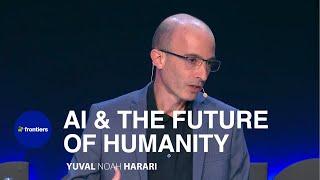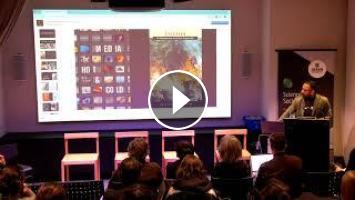Watch the re-mastered opening keynote of the 2025 AusSTS "Signals and Noises" conference, live from the National Communication Museum.
We are thrilled to have had Dang Nguyen (RMIT), Fabian Offert (UCSB), Ranjodh Dhaliwal Singh (University of Basel), Kate Mannell (Deakin University) start off the #signalsandnoises conversation, chaired by Glen Berman.
Infrastructures of noise
Noise is endemic to the communications infrastructure of contemporary life. The phenomena of misinformation, hallucination, radicalisation, and disorder are defining features of a new sociotechnical paradigm ushered in by the confluence of social media platforms, generative AI, and ubiquitous marketisation. But are these phenomena best understood as noise or signal? How can we think with, and through, the noise/signal distinction, to better understand the shifting status and value of noise, and what kind of problem noise is for us today? This keynote panel will explore these questions through historical and contemporary case studies, and in dialogue with the National Communication Museum’s Signal to Noise exhibition.
Speaker Bios
Ranjodh Singh Dhaliwal holds the professorship in Digital Humanities, Artificial Intelligence, and Media Studies at the University of Basel, where he also directs the Digital Humanities Laboratory. He was previously the Ruth and Paul Idzik Collegiate Chair of Digital Scholarship and English at the University of Notre Dame. He is the co-author (with Théo Lepage-Richer and Lucy Suchman) of Neural Networks (University of Minnesota Press and meson press, 2024), and his award-winning writing—situated between media theory, STS, computer science, literary studies, and critical design—can be found in Critical Inquiry, Configurations, American Literature, JCMS, ACM FDG, ACM UIST, and Design Issues, among other venues. His current book project, “Rendering: A Political Anatomy of Computation,” shows how our cultural narratives, politico-economic formulations, and epistemic beliefs become crystallized into computational hardware and software architectures. He is an incoming president of the Society for Literature, Science, and the Arts (SLSA).
Fabian Offert is Assistant Professor for the History and Theory of the Digital Humanities and Director of the Center for the Humanities and Machine Learning (HUML) at the University of California, Santa Barbara. His research focuses on the epistemology, aesthetics, and politics of artificial intelligence, with recent publications appearing in AI & Society, Visual Resources, the Journal of Digital Social Research, American Literature, and Media + Environment, among others. His current book project, Vector Media (Meson Press/University of Minnesota Press, 2025) writes a new historical epistemology of artificial intelligence, asking how machine learning models represent culture and what is at stake when they do. Fabian is also principal investigator of the “AI Forensics” international research project on explainable artificial intelligence, supported by the Volkswagen Foundation, and 2025 Rudolf Wittkower Fellow at the Bibliotheca Hertziana – Max Planck Institute for Art History in Rome.
Dang Nguyen is a Research Fellow at the ARC Centre of Excellence for Automated Decision-Making & Society at RMIT University. Dang holds a PhD from the University of Melbourne and a Master of Science in Social Science of the Internet from the University of Oxford, where she was a Chevening Scholar. She has been a Fox Fellow at Yale University and a Majority World Scholar at Yale Law School. Dang serves as a media and technology expert on the International Panel for the Information Environment (IPIE). Dang's books include 'Digital research methods and the diaspora' (Routledge, 2023) and 'Internet cures' (Bristol University Press, 2024). Dang has also published widely in a range of scholarly venues, such as New Media & Society, Information, Communication & Society, Media, Culture & Society, International Journal of Communication, Social Science & Medicine, and Health & Place.
Kate Mannell is a Research Fellow at Deakin University in the ARC Centre of Excellence for the Digital Child. Her work examines the design, governance, and use of digital technologies, with a particular focus on their role in the lives of families and young people. Her current research centres on contemporary parenting culture, popular discourse around children's screen time, and a partnership with Gunya Meta, an Indigenous community organisation in Logan, Brisbane. She recently published the edited volume The Platformization of the Family and her research has been covered by media outlets including The Atlantic, The Guardian, and ABC. She's online at @katemannell.bsky.social.
We are thrilled to have had Dang Nguyen (RMIT), Fabian Offert (UCSB), Ranjodh Dhaliwal Singh (University of Basel), Kate Mannell (Deakin University) start off the #signalsandnoises conversation, chaired by Glen Berman.
Infrastructures of noise
Noise is endemic to the communications infrastructure of contemporary life. The phenomena of misinformation, hallucination, radicalisation, and disorder are defining features of a new sociotechnical paradigm ushered in by the confluence of social media platforms, generative AI, and ubiquitous marketisation. But are these phenomena best understood as noise or signal? How can we think with, and through, the noise/signal distinction, to better understand the shifting status and value of noise, and what kind of problem noise is for us today? This keynote panel will explore these questions through historical and contemporary case studies, and in dialogue with the National Communication Museum’s Signal to Noise exhibition.
Speaker Bios
Ranjodh Singh Dhaliwal holds the professorship in Digital Humanities, Artificial Intelligence, and Media Studies at the University of Basel, where he also directs the Digital Humanities Laboratory. He was previously the Ruth and Paul Idzik Collegiate Chair of Digital Scholarship and English at the University of Notre Dame. He is the co-author (with Théo Lepage-Richer and Lucy Suchman) of Neural Networks (University of Minnesota Press and meson press, 2024), and his award-winning writing—situated between media theory, STS, computer science, literary studies, and critical design—can be found in Critical Inquiry, Configurations, American Literature, JCMS, ACM FDG, ACM UIST, and Design Issues, among other venues. His current book project, “Rendering: A Political Anatomy of Computation,” shows how our cultural narratives, politico-economic formulations, and epistemic beliefs become crystallized into computational hardware and software architectures. He is an incoming president of the Society for Literature, Science, and the Arts (SLSA).
Fabian Offert is Assistant Professor for the History and Theory of the Digital Humanities and Director of the Center for the Humanities and Machine Learning (HUML) at the University of California, Santa Barbara. His research focuses on the epistemology, aesthetics, and politics of artificial intelligence, with recent publications appearing in AI & Society, Visual Resources, the Journal of Digital Social Research, American Literature, and Media + Environment, among others. His current book project, Vector Media (Meson Press/University of Minnesota Press, 2025) writes a new historical epistemology of artificial intelligence, asking how machine learning models represent culture and what is at stake when they do. Fabian is also principal investigator of the “AI Forensics” international research project on explainable artificial intelligence, supported by the Volkswagen Foundation, and 2025 Rudolf Wittkower Fellow at the Bibliotheca Hertziana – Max Planck Institute for Art History in Rome.
Dang Nguyen is a Research Fellow at the ARC Centre of Excellence for Automated Decision-Making & Society at RMIT University. Dang holds a PhD from the University of Melbourne and a Master of Science in Social Science of the Internet from the University of Oxford, where she was a Chevening Scholar. She has been a Fox Fellow at Yale University and a Majority World Scholar at Yale Law School. Dang serves as a media and technology expert on the International Panel for the Information Environment (IPIE). Dang's books include 'Digital research methods and the diaspora' (Routledge, 2023) and 'Internet cures' (Bristol University Press, 2024). Dang has also published widely in a range of scholarly venues, such as New Media & Society, Information, Communication & Society, Media, Culture & Society, International Journal of Communication, Social Science & Medicine, and Health & Place.
Kate Mannell is a Research Fellow at Deakin University in the ARC Centre of Excellence for the Digital Child. Her work examines the design, governance, and use of digital technologies, with a particular focus on their role in the lives of families and young people. Her current research centres on contemporary parenting culture, popular discourse around children's screen time, and a partnership with Gunya Meta, an Indigenous community organisation in Logan, Brisbane. She recently published the edited volume The Platformization of the Family and her research has been covered by media outlets including The Atlantic, The Guardian, and ABC. She's online at @katemannell.bsky.social.
- Category
- Artificial Intelligence












Comments